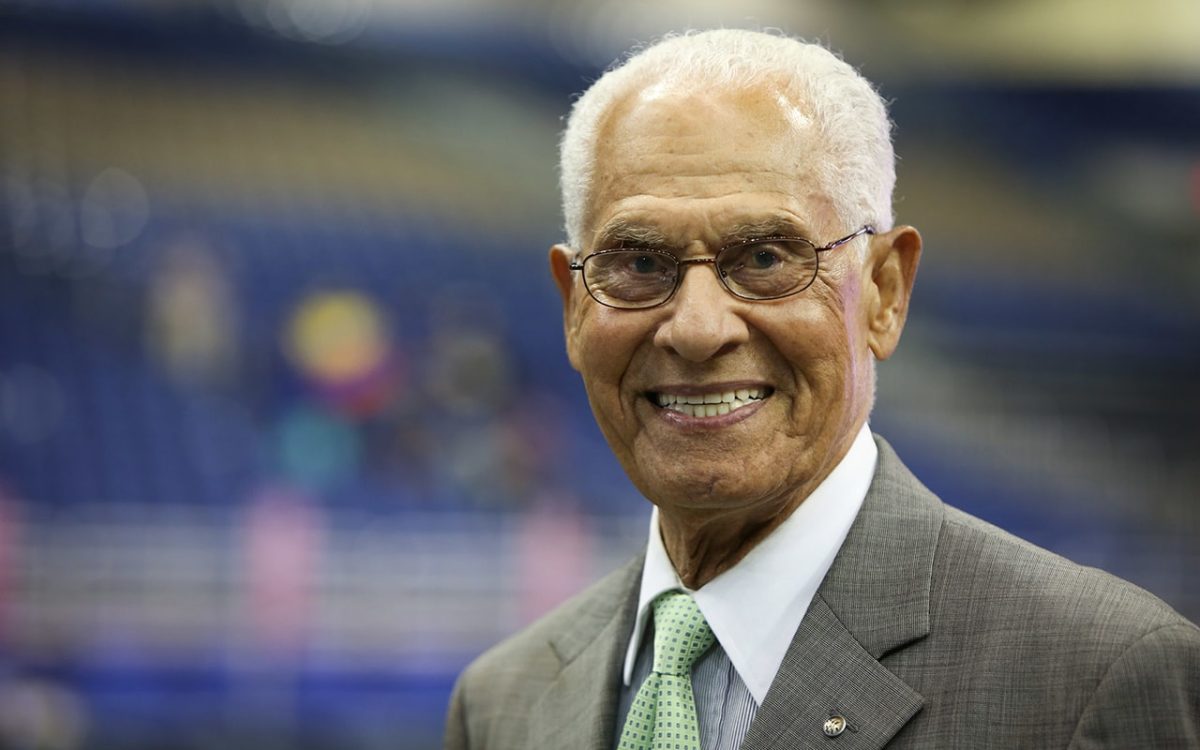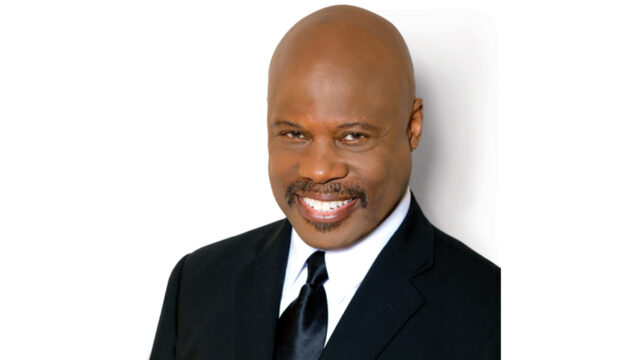The wisdom of George W. Brown

Editor’s Note: George W. Brown, former president of the Inter-American Division, celebrates his 100th birthday on January 11. His granddaughter Nicole sat down with him to discuss his legacy.
From a young age I knew George W. Brown was a great man. My understanding of his greatness was the result, not of studying his ministerial efforts, but of my observation of him in intimate moments. I have the rare privilege as his granddaughter of seeing him as a husband, a father, a grandfather, and a friend. I’ve seen his silliness, his amazing humor, and his delighted mischief as he interacts with his grandchildren. I am also a keen witness to his intelligence. My opa possesses venerable wisdom and practices profound diplomacy. Indeed, I am afforded insight into the deeper complexity of his character.
It was during the Atlanta General Conference Session in 2010 that I began to grasp my opa’s impact as a public figure and spiritual leader. When I was a child, my family members existed merely in the context of their roles. My mom was simply Mama, not Arlene. My dad was Daddy, not Miguel. And my grandfather was simply Opa, not George W. Brown. Back then I did not have the ability to grasp his 40-plus years in denominational service, which included 13 years as the Inter-American Division president. What I knew was that we were allowed seats on the ground floor of the sessions, and that it took nearly 40 minutes for us to leave the venue because of people stopping him to say hello or to share the profound impact his time in ministry had on their lives.
As I have grown older and begun to dip my toes into ministry and denominational partnerships, seeking out the wisdom of my grandfather and his ministry has become more and more important. In honor of his legacy, I asked him questions that can benefit believers of all ages.
Nicole: What have you learned about God?
George Brown: During my long life and ministry I have progressively learned many things about God. The God I know, love, and serve is more than the transcendent, all-powerful, all-knowing, ever-present God who is Creator, Sustainer, and Protector. He is the embodiment of self-giving, unconditional love, mercy, and amazing grace. All that God is was manifested in the life, ministry, and sacrifice of Jesus Christ for all humanity. I have learned that without Him I cannot live and without Him I dare not die.
ND: Can you share what have you learned about ministry?
GB: I have learned that ministry is God’s gracious invitation to His followers to become “workers together with Him” (2 Cor. 6:1) in His redemptive strategy for fallen humanity. I have learned that the term ministry includes much more than pastoral ministry. All church activities that meet human need, whether spiritual, emotional, physical, or intellectual, are all part of the divine ministry of reconciliation—the restoration of the image of God in humankind. Ministry is self-giving redemptive service to people.
ND: Give us some insights on your time spent in leadership.
GB: I have learned that authentic leadership is driven by Christ’s servant-leadership model. Christ’s leadership model is the opposite of the secular concept of leadership. Throughout my many years of pastoral and administrative leadership I’ve learned that genuine leadership is always Christ-centered, service-driven, redemptive, and transformational. Philippians 2:5-8 succinctly epitomizes the essence of Christian leadership. Modeling Christ’s leadership style empowers us to lead with humility, integrity, love, and faithfulness.
ND: Discipleship. Tell me what it means to you.
GB: One of the primary principles I’ve learned about discipleship is that it is demanding. Dietrich Bonhoeffer, in his book The Cost of Discipleship, defined discipleship as an “exclusive attachment” to the person of Jesus Christ. This is one of the greatest demands of discipleship. True discipleship is driven by self-giving love without limit. Discipleship also demands spontaneous obedience to the Lordship of Jesus Christ. To the true disciple, obedience is never a burden but a priceless joy and privilege. This is implied in Matthew 28:18. Discipleship is more than learning the gospel; it is living and giving the gospel, thus making disciples for the Master Teacher.
ND: What should be the primary focus of church members?
GB: Among the many things I wish our church could remember is that God is calling His end-time church to stand firm on the biblical platform of truth He has given us as His end-time people. It is imperative that we remember our rich heritage, our prophetic origin, and our urgent universal mandate embodied in the three angels’ messages of Revelation 14:6-12. Remember that Adventism is not just another Protestant church. It is a prophetic movement with a unique global message—the everlasting gospel. As a church we are urged to “hold to the sure pillars of our faith. The principles of truth that God has revealed to us are our only true foundation. They have made us what we are.”*
ND: What would you like people in ministry to know going into their work?
GB: I would like them to know that the master key to a successful ministry is the empowerment of the Holy Spirit (Acts 1:8; Zech. 4:6). The Holy Spirit does not empower machinery, institutions, organizations, or state-of-the-art technology. He empowers men and women who fully surrender to the Lordship of Jesus Christ. All who enter ministry should vigilantly guard against the evils of institutionalism, secularism, and Laodicean apathy. Success in ministry is assured when it is Christ-centered, Spirit-led, biblically sound, and mission-driven!
ND: There are few who lay everything they have accomplished in life at the feet of their heavenly Father and mean it wholeheartedly. Charting the phases of his life by the growth of his faith, Opa has refused to stay stagnant in any area of his life, challenging himself and his church to forever return to the Scriptures, imploring self-reflection with the intention of growth rather than the assumption we have gleaned everything there is to know within the vast beauty of God’s Word.
His home library is a monument to his faith, his family, and his career, with books on every subject. Plaques honoring his life line the walls, dotted by pictures of his family, both biological and otherwise. My opa, this loving, brilliant, witty man, has lived his life in humble glorification of God. He has always said, “All that I am and have accomplished I owe to God’s amazing grace and the nurture and support of my beloved church.” For George W. Brown, the Seventh-day Adventist Church has had a profound impact on his life.
* Ellen G. White, Selected Messages (Washington, D.C.: Review and Herald Pub. Assn., 1958, 1980), book 1, p. 201.








